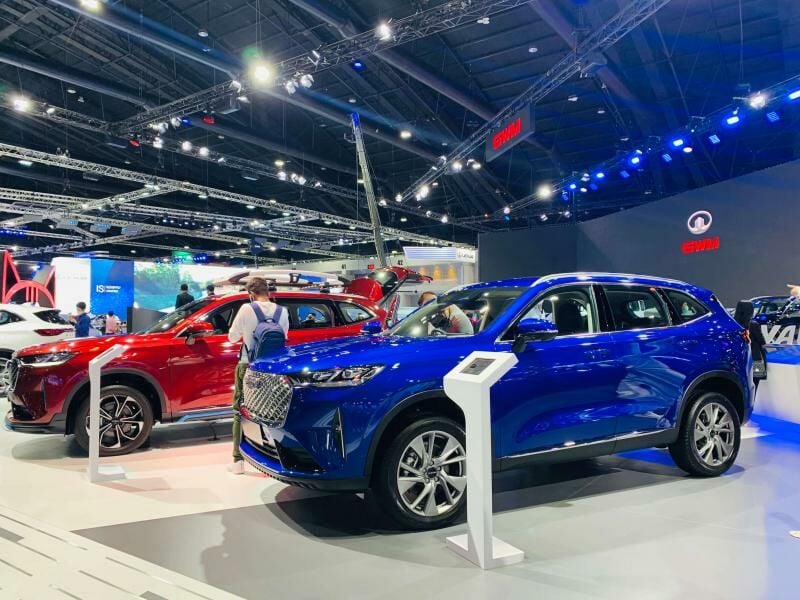Thailand ups electric vehicle incentives, after 30% spike in foreign direct investment

Thailand Board of Investment has approved revised conditions and incentives for investing in electric vehicles and the infrastructure needed to support them, specifically charging stations. Today’s BOI announcement comes as Thailand increases its incentives for people to buy and invest in electric vehicles, in an effort to maintain its grip on Southeast Asia’s car manufacturing market, which is transitioning to a future full of EVs.
Smaller and compact charging stations will now be qualified for a three-year tax relief. The new measure is in addition to a five-year corporation tax cut available for investment opportunities in charging stations with at least 40 chargers, a fourth of which must be the newer DC style. DC fast chargers offer significantly faster charging times than the traditional AV chargers.
Moreover, the BOI has scrapped the requirement for ISO certification and a condition stopping investors from getting extra benefits from other agencies. They cited the irrelevance of such outdated requirements, as technology advances and the need to rapidly expand charging facilities throughout the country.
Now investing in EV charging tech is easier than ever before in Thailand. Investors either have to submit an implementation plan for their EV Smart Charging System or connect to the EV Charging Network Operator Platform. This platform is still under development and will become “a central mechanism to create an efficient management for both operators and battery electric vehicle users”, the Bangkok Post reported. That’s in addition to following to the relevant safety regulations for charging stations, of course. Speaking to reporters after the meeting, BOI Secretary General Duangjai Asawachintachit said…
“We have listened to the EV-related investors’ concerns and revised the measures to ensure that our incentives stay relevant in a fast-changing business environment. This will enable investors, particularly SMEs and startups to have more access to BOI benefits, and manage their costs more effectively.”
The total foreign and Thai investment, including the automotive and parts sector, totaled nearly 111 billion baht between January and March — a 6% decrease from 2021 due to global geopolitical and economic hurdles. Meanwhile, foreign direct investment increased by nearly 30% to more than 77 billion baht in the first three months of 2021, with China, Taiwan and Japan topping the FDI list for foreign investment.
Thailand’s auto industry ranked No. 1, with an investment value of nearly 42 billion baht — more than half of the applications for target industries in the first quarter. It was followed by agriculture and food processing with 12 billion baht, and electronics with more than 10 billion baht, the Bangkok Post reported.
Thailand’s government aims for EVs to comprise 30% of the nation’s overall car production output by 2030. To attract buyers, they’re currently offering a special package for the next two years, featuring tax cuts and subsidies ranging from 70,000 to 150,000 baht.
This year’s Bangkok International Motor Show recorded sales of some 34,000 vehicles, nearly a 14% increase compared to last year. The 43rd edition of the popular motor show took place over a span of two weeks at Impact Muang Thong Thani in Bangkok and wrapped up on Sunday.
Traditional gas-powered vehicles had the lion’s share of the sales, while electric cars, or EVS, stole the spotlight among car enthusiasts. EV bookings grew by 10% to more than 2,000 vehicles, with SAIC Motor and MG registering the most orders, followed by Great Wall Motor, or GWM. A total of 1,500 sales were made between MG and GWM.
SOURCE: Bangkok Post | The Thaiger
SOURCE: Bangkok Post
Latest Thailand News
Follow The Thaiger on Google News:


























